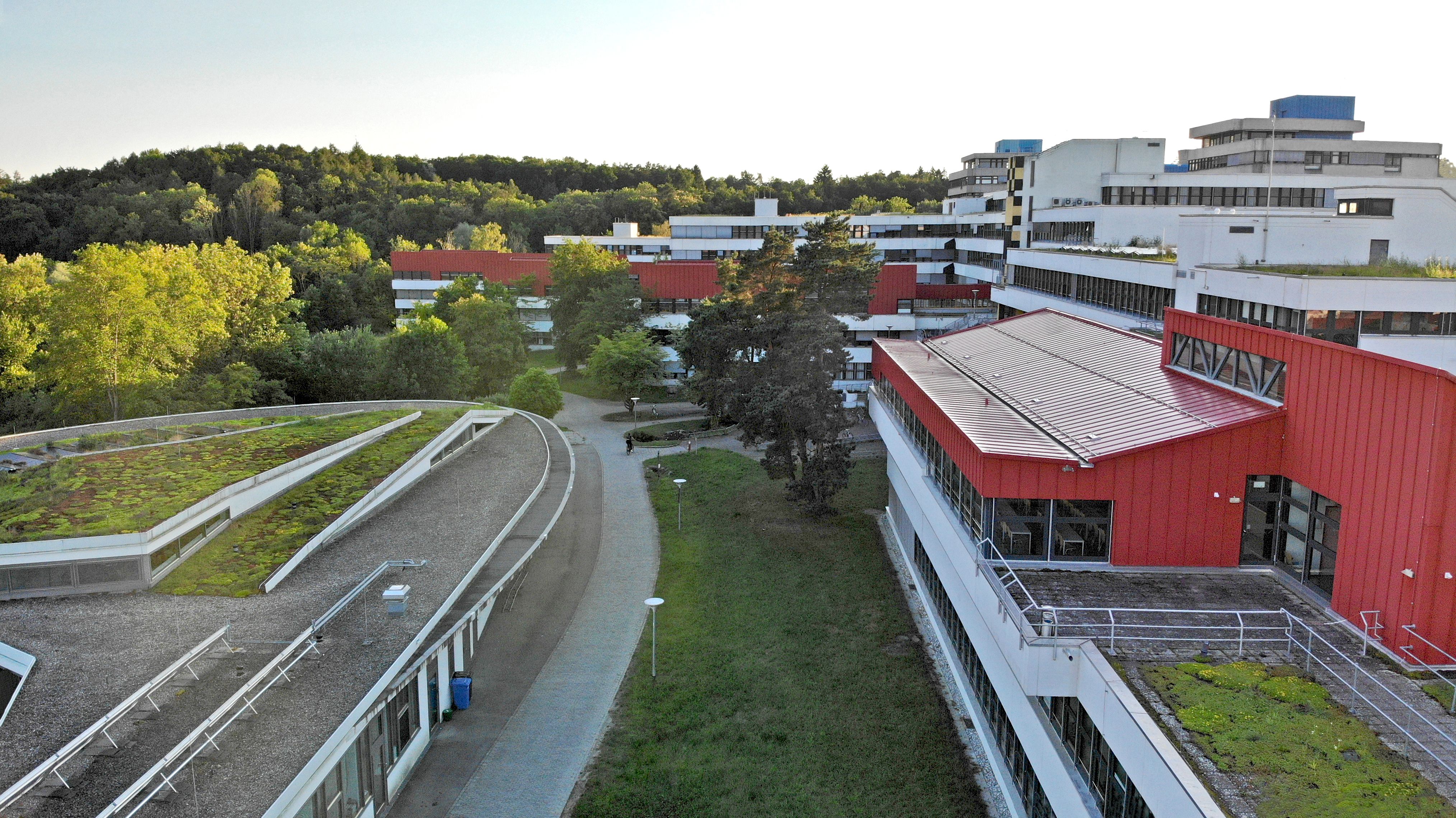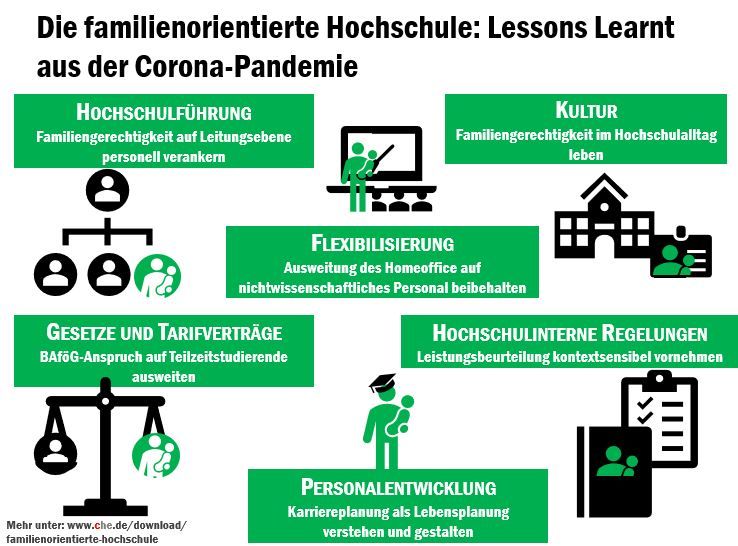
Family orientation limits the negative impacts of the coronavirus pandemic on universities
In a publication, the CHE (Centre for Higher Education) spotlights the University of Konstanz’s measures to increase the compatibility of family life and university responsibilities
Family orientation has been one of the University of Konstanz's core values for years, with numerous support measures such as the childcare centre, emergency childcare, the programme “Academic Career with Children”, specific advice services and other formats such as flexible working conditions for parents. Due to COVID-related changes and limitations, the ability to balance work and study with family responsibilities is currently being severely tested. Many professors, staff members and students with care duties are under immense pressure. The strain during the coronavirus pandemic has even increased. “It is especially women who take over the majority of care tasks and who are increasingly reaching their limits with daycare centres and schools still being closed or only open to a limited extent,” says Tanja Edelhäußer, vice director of the Office for Equal Opportunity, Family Affairs and Diversity at the University of Konstanz.
Universities need to adopt innovative approaches to support families during the pandemic. The Rectorate of the University of Konstanz, too, expressly encourages measures to make work and studies compatible with family responsibilities. The Kanzler and Family Affairs Representative in the Rectorate, Jens Apitz, explains: “Both in the Rectorate and the administration, we are well aware of how difficult this situation is. At an early stage, we provided flexible and targeted measures such as work from home, childcare, support for teaching staff and arrangements regarding time our staff could not work due to a lack of external childcare options. Our Senate supports a statement by the Equal Opportunity Council pointing out the compatibility problems, and it calls on the university bodies to suggest supportive measures.”
The university’s measures include, for example, additional assistants who help teaching staff with preparing online teaching materials, solutions for childcare, a special category in the FAQs on limited university operations as well as guidance for the assessment of junior and tenure-track professors and civil servants and how to account for the coronavirus-related restrictions they have faced. Moreover, a website was created on the topics of equal opportunities and compatibility in academia during the pandemic.
Tanja Edelhäußer, who also coordinates the programme “Academic Career with Children” at the University of Konstanz, thinks more needs to be done to support early career researchers: “A survey among academic staff members showed that especially female postdoctoral researchers with children are under immense pressure. Not only the ‘family gap’, but also the ‘gender gap’ is rapidly increasing because of the pandemic. The gap between female and male researchers, between those with and without family responsibilities, is growing at our university, too. We have to find ways to take these limitations into account in future funding and selection decisions. Professor Ines Mergel, the Equal Opportunity Representative (for academic staff) at the University of Konstanz, also bears the general situation in mind when she emphasizes: “Only if the impacts of a lack of childcare options and time-consuming online teaching are recognized will we be able to counteract long-term disadvantages in career development and a potential increase in the number of women leaving or being pushed out of the world of research.”
Tanja Edelhäußer is also a member of the association “Familie in der Hochschule”, in which 122 universities from Germany, Austria and Switzerland have joined forces and are intensively examining solutions for families during the pandemic. Together with CHE, the association advocates for establishing the topic of family friendliness at all universities and permanently, at the highest level of management. The findings are based on a survey of family representatives at universities, that led to a publication by CHE (Lisa Mordhorst, Caroline Friedhoff, Nina Horstmann and Frank Ziegele: „Der Weg zur familienorientierten Hochschule – Lessons Learnt aus der Corona-Pandemie“, in German).
The focus was on family-oriented structures that proved helpful at universities during the pandemic or that were newly developed during this time. The result was that those universities had an advantage that already had well-established structures for family friendliness, e.g. a representative at management level. For these universities it was easier to create new support tools or extend existing measures, such as working remotely. It also became apparent that greater flexibility for administrative staff, such as working from home, makes everyday life for families much easier.
Key facts:
- In a recent publication, the CHE Center for Higher Education Development spotlights University of Konstanz support measures for balancing career and studies also during the pandemic.
- The publication is available here: www.che.de/download/familienorientierte-hochschule
- Support measures such as the childcare centre, emergency childcare, the programme “Academic Career with Children”, specific advice services and other formats such as flexible working conditions for parents have been established at the University of Konstanz and are well received.
- Contact: Tanja, Edelhäußer, vice director of the Office for Equal Opportunity, Family Affairs and Diversity, board member of “Familie in der Hochschule e.V.”, phone +49 7531 88 5314, email: tanja.edelhaeusser@uni-konstanz.de

